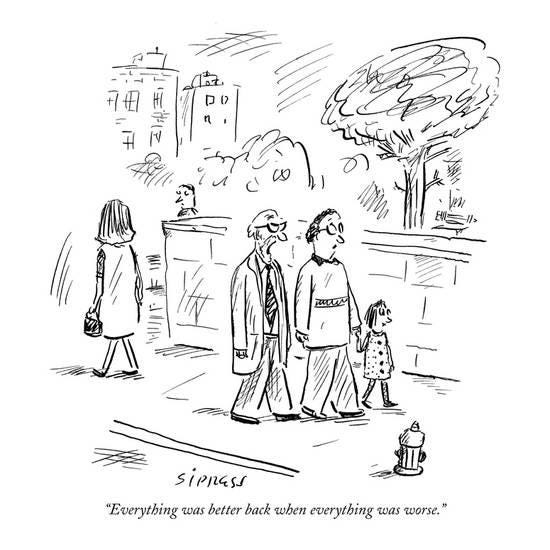Around 300 BC, a wealthy merchant set out on a voyage from his home in ancient Cyprus, Phoenicia, to Piraeus, a harbor town close to Athens.
Having almost made it to his destination, his ship crashed and went under, including the precious cargo. Luckily, he survived. Eventually, he reached Athens, and, once there, decided it’d be best to not do anything for a while.
Enjoying his newly found spare time, he spent most of it walking around the city, exploring. One day, he came across a book store, went inside, and picked up the first book that spoke to him. Its title was ‘Memorabilia.’ In the book, a man named Xenophon described episodes of his mentor’s life and how he tried to help others. That mentor was the famous philosopher Socrates.
The merchant was so inspired that he asked the owner of the store where he could find more men like Socrates. As fate would have it, another well-known philosopher happened to walk by, so the owner simply pointed at him. The merchant approached the philosopher and they started a conversation. After a while, he decided to stay and study under the philosopher’s tutelage.
He never left Athens again.
The Dangers of Importing Philosophy
Throughout history, many ideas from the ancient East have permeated into the newer, Western parts of the world. The most popular one, one that seems to be inseparably tied to our modern culture, may be the Japanese ideal behind the phrase “nana korobi ya oki.” It roughly translates to “fall down seven times, stand up eight” and is a reminder of the value of resilience.
This idea is deeply embedded in our Western concept of what makes a good life. It is the sole topic of thousands of podcasts, has given birth to countless books, and is the central theme of most conversations around, even our very definitions of success. And yet, in this historic game of telephone, it seems along the line half the message was lost. One aspect we completely neglect.
The Japanese have always been equally as slow as they have been perseverant.
That’s not a bad thing. To the contrary, it allows for deliberate action, refined decisions and the utmost respect of others in seeing them through. As Roman poet Ovid would put it: Dripping water holes the stone. And when you fail, the speed with which you bounce back has big implications.
What we tend to emphasize is how fast a person can stomach a setback, rather than how strong they return. Each defeat is supposed to be followed with an immediate, new attempt. On to the next one. Isn’t that how we say? But when you rush to recover from failure, springing from rock bottom like a jack-in-the-box, you’re likely to run into the same concrete wall, just faster. You’re not just too distracted to see what went wrong, you’re too busy to even look.
And, especially today, there’s a lot to be said for looking.
The Fortuitous Castaway
The name of the merchant was Zeno. Zeno of Citium. Once he dove into the ideas of philosophy, he found them to be so important that he saw no fate but one in which he spread and taught them for the remainder of his life.
To better understand the teachings of his master, he practiced discourse while pacing up and down a prominent, public square in Athens. As he became more articulate, people eventually gathered to hear him speak. When he parted ways with his teacher some 20 years later, his own pupils would come to be known as Zenonians.
Today, however, we call those people Stoics. Zeno is the founder of Stoic philosophy. 2,000 years later, it is one of the fundamental pillars of Western history. An entire branch of education is dedicated to studying, interpreting, and understanding its ideas. We teach Stoicism to children in schools and every month, over 300,000 adults turn to Google to learn more about it.
Ultimately, all of this goes back to one man’s decision to bounce back slowly. Instead of racing to recover his cargo, make the next trade, or return home with the next ship, he allowed the dust to settle. Once it did, he was able to see a new path and step on it with confidence.
I’m sure he would agree that sometimes, idleness can lead to amazing things.
A Chance For Quiet Observation
I’m not a boxer, so I can only imagine how much strategy follows being knocked down, but even if you know you can get up again, wouldn’t it be smart to stay down till the count’s at nine? They’re just seconds, but seconds of recovery nonetheless.
What’s more, they’re seconds of quiet observation. They give you a chance to catch up on your environment. Get a feel for what’s going on. Of course, life is not a boxing match. You can stay down for a while. Take some time to think. Even look at the stars. And, once you do come back, you’ll come out swinging.
But when we respond to setbacks with ever more aggressive attacks, we rob serendipity of the space it needs to unfold. It’s impossible to contextualize individual events when they’re inches from our face. We need time to process, to let our guts digest the experience. So that they may lead us in the right direction going forward.
Whether it’s the same direction we used to have or an entirely new one, we can’t know in advance. But I have a hunch that those, who take a deep breath and stay idle for some time, will often quote the words of Zeno looking back:
“I made a prosperous voyage when I suffered shipwreck.”


















